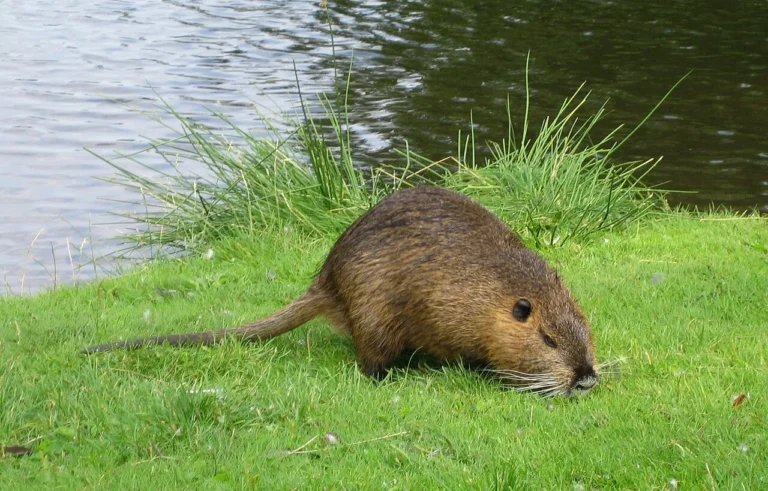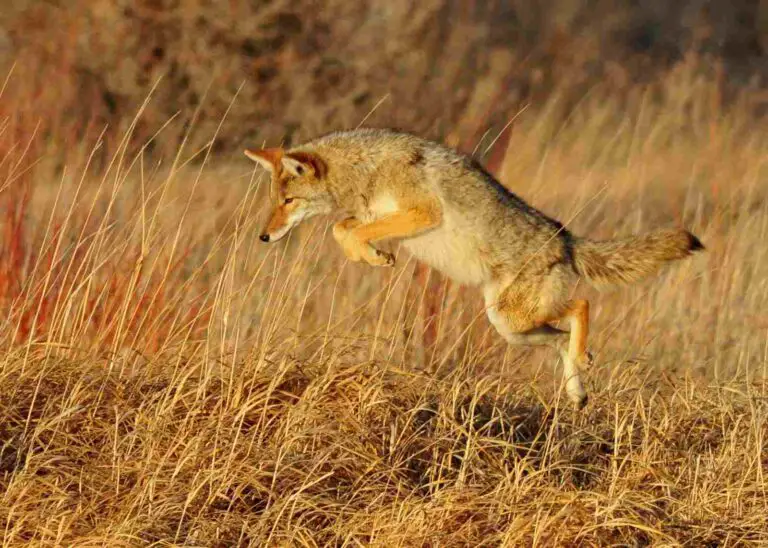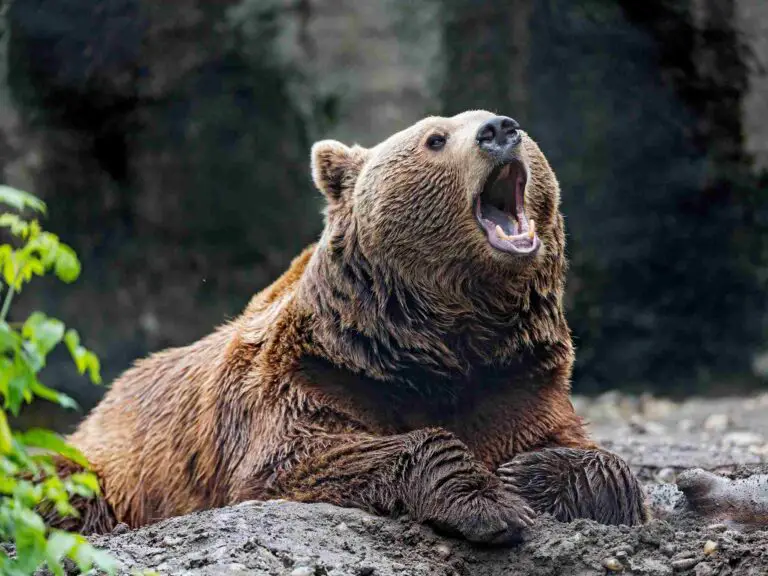Hippo Vs Lion Size, Weight, Ecological Comparison
The size and weight of a hippo compared to a lion play a significant role in determining the outcome of a confrontation between the two. With its much larger size and heavier weight, the hippo has a clear advantage over the lion.
In this article, we will explore various factors that can be used to compare these animals and understand their ecological differences. By examining their taxonomy, appearance, size, weight, bite force, and overall physical capacity, we can gain a better understanding of their characteristics, as well as which animal is stronger.
Key Outcomes
*Biological Comparison
The hippo and lion are not biologically related in terms of genus and species. Despite this, a biological comparison between the two animals reveals interesting differences. The hippo, scientifically known as Hippopotamus amphibius, is a large herbivorous mammal native to sub-Saharan Africa. On the other hand, the lion, scientifically known as Panthera leo, is a carnivorous mammal found in various parts of Africa and Asia.
While the hippo is known for its massive size and barrel-shaped body, the lion is renowned for its muscular build and majestic appearance. Both animals have unique adaptations that allow them to thrive in their respective habitats.
*Size and Weight Comparison
The size and weight comparison between the hippo and lion is an intriguing aspect to explore. When it comes to size, the hippo takes the lead as it is larger than the lion. Adult hippos can reach lengths of up to 13 feet and stand around 5 feet tall at the shoulder. In contrast, adult male lions typically measure around 8 feet in length and stand about 4 feet tall at the shoulder.
In terms of weight, the hippo also outweighs the lion. Adult male hippos can weigh anywhere between 3,500 to 9,900 pounds, while male lions usually weigh around 420 to 570 pounds. These significant differences in size and weight contribute to the distinct physical characteristics and capabilities of each animal.
*Physical Capability Comparison
The physical capability comparison between the hippo and lion is a fascinating aspect to explore. While both animals possess impressive strength, the hippo is known to be much stronger than the lion. However, determining which animal would overpower and cause the death of the other is a complex comparison.
1). Taxonomy
The taxonomy of the hippo and lion provides insight into their evolutionary relationships and biological classifications. The hippo belongs to the genus Hippopotamus, with two extant species: the common hippopotamus (Hippopotamus amphibius) and the pygmy hippopotamus (Choeropsis liberiensis). On the other hand, the lion is classified under the genus Panthera, specifically Panthera leo.
Both animals are part of the Animalia kingdom, Chordata phylum, and Mammalia class. However, they diverge at the order level, with the hippo belonging to the Artiodactyla order and the lion to the Carnivora order. Despite their different orders, both animals share similarities in terms of their mammalian characteristics, such as having mammary glands and giving birth to live young.
In terms of their biological comparison, the hippo and lion have distinct adaptations and features that have allowed them to thrive in their respective habitats. While the hippo is a semi-aquatic herbivore, the lion is a terrestrial carnivore. These differences in diet and habitat have shaped their physical characteristics and behaviors.
Understanding the taxonomy of these animals provides a foundation for further exploration of their unique traits and behaviors.
2). Appearance
The appearance of both the hippo and lion is distinct and well-adapted to their respective environments. Starting with their coats, the hippo has a hairless, thick, and smooth skin that is mostly gray or brown in color. This unique skin adaptation helps to keep the hippo cool and protected from the sun’s rays. On the other hand, the lion has a short-haired fur coat that varies in color, ranging from light tan to dark brown. This fur provides insulation and helps the lion blend into its surroundings while hunting.
In terms of stature and build, the hippo is known for its large and bulky body, with short legs and a barrel-shaped torso. This physical structure allows the hippo to move effortlessly through water and navigate its semi-aquatic habitat. In contrast, the lion has a more streamlined and muscular build, with long legs and a slender body. This agile physique enables the lion to chase and capture its prey on land.
When it comes to camouflage, both animals have unique adaptations. The hippo’s skin coloration helps it blend in with the muddy waters of rivers and lakes, providing camouflage from potential predators. On the other hand, the lion’s fur coloration helps it blend into the grassy savannahs where it hunts, making it less visible to its prey.
3). Size
Hippos are much larger and heavier than lions, on average.
When comparing the size of the hippo and lion, it is important to consider their total body length and height at the shoulders. The hippo is known for its massive size, with adult males reaching lengths of up to 5 meters (16 feet) and standing at a height of around 1.5 meters (5 feet) at the shoulders. In comparison, adult male lions typically measure around 2.5 meters (8 feet) in length and stand at a height of approximately 1.2 meters (4 feet) at the shoulders.
The size difference between these two animals is quite significant, with the hippo being much larger and bulkier than the lion. This size advantage gives the hippo a formidable presence in its environment, making it one of the largest land mammals in Africa. On the other hand, the lion’s size allows it to be more agile and swift, making it a skilled predator on the African savannah.
In terms of weight, adult male hippos can weigh anywhere between 1,500 to 3,200 kilograms (3,300 to 7,100 pounds), while adult male lions typically weigh between 190 to 230 kilograms (420 to 510 pounds). This weight difference further emphasizes the substantial size discrepancy between these two animals.
4). Weight
When comparing the weight of hippos and lions, it is evident that hippos are significantly heavier than lions. Adult male hippos can weigh anywhere between 1,500 to 3,200 kilograms (3,300 to 7,100 pounds), while adult male lions typically weigh between 190 to 230 kilograms (420 to 510 pounds). This weight difference highlights the substantial size discrepancy between these two animals.
The weight of a hippo is a result of its large body size and dense bone structure. Their massive bodies are supported by strong, muscular limbs that allow them to move through water and on land with relative ease. In contrast, lions have a more slender and agile build, which is better suited for their hunting and predatory lifestyle.
The weight advantage of hippos gives them a significant advantage in terms of physical presence and dominance in their environment. It allows them to exert their authority and defend their territories against potential threats. On the other hand, the lighter weight of lions enables them to be more nimble and swift, making them highly efficient hunters on the African savannah.
Therefore, the weight difference between hippos and lions is substantial, with hippos being much heavier due to their larger body size and dense bone structure. This weight advantage contributes to their dominance in their respective habitats, while the lighter weight of lions enhances their agility and hunting capabilities.
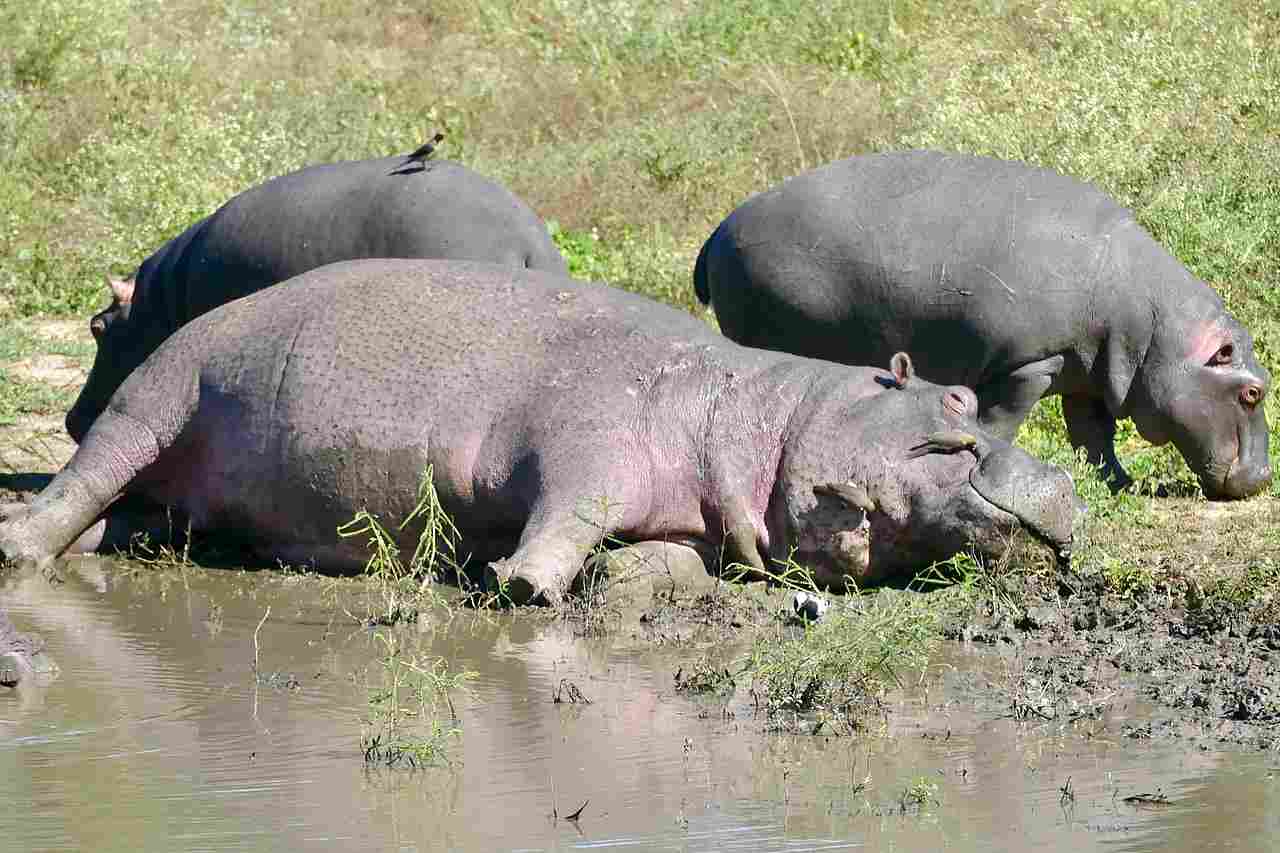
5). Bite Force
When comparing the bite force of hippos and lions, it is clear that these animals possess different levels of strength in their jaws. The bite force of an animal is measured in pounds per square inch (psi), which indicates the pressure exerted by their jaws.
Hippos have an incredibly powerful bite force, with estimates ranging from 1,800 to 2,000 psi. This immense bite force allows them to crush and tear through tough vegetation, as well as defend themselves against potential threats. Their strong jaws and large, sharp teeth are well-suited for their herbivorous diet and territorial defense.
On the other hand, lions have a bite force of approximately 650 psi. While not as powerful as hippos, this bite force is still formidable and enables lions to take down their prey efficiently. Lions have sharp, retractable claws and strong jaw muscles that work in conjunction with their bite force, allowing them to deliver a swift and lethal attack.
When comparing the bite force of hippos and lions, hippos have a significantly stronger bite force than lions. This is due to their herbivorous diet and the need to defend themselves against potential threats. However, it is important to note that lions possess a formidable bite force as well, which, combined with their other physical capabilities, makes them highly efficient hunters in their natural habitat.
6). Overall Physical Capacity (Which is Stronger?)
When comparing the overall physical capacity of hippos and lions, it is evident that the hippo is much stronger based on the factors we have evaluated and compared.
In terms of size and weight, hippos are significantly larger and heavier than lions. Hippos can reach lengths of up to 16 feet and weigh as much as 3,500 kilograms, while lions typically measure around 6 to 8 feet in length and weigh between 120 to 190 kilograms. This size advantage gives hippos a greater physical presence and the ability to exert more force in confrontations.
Additionally, hippos possess an incredibly powerful bite force, with estimates ranging from 1,800 to 2,000 psi. This immense bite force allows them to crush and tear through tough vegetation, as well as defend themselves against potential threats. In contrast, lions have a bite force of approximately 650 psi, which is considerably weaker in comparison.
Furthermore, hippos have thick, tough skin that acts as a natural armor, providing them with protection against attacks. Lions, although agile and equipped with sharp claws, lack this level of physical defense.
In a violent confrontation between a hippo and a lion, it is highly likely that the hippo’s superior size, weight, bite force, and protective skin would give it the advantage. However, it is important to note that lions possess their own unique physical capabilities, such as speed, agility, and hunting skills, which make them formidable predators in their own right.
7). Habitat
The habitat of hippos and lions plays a crucial role in shaping their behavior and survival strategies. Hippos are primarily found in sub-Saharan Africa, inhabiting rivers, lakes, and swamps. They are well-adapted to aquatic environments, spending most of their time in water to keep their massive bodies cool and protected from the sun. Hippos rely on these water sources for both hydration and as a means of escape from predators.
On the other hand, lions are more versatile in terms of habitat. They are found in various ecosystems across Africa, including grasslands, savannas, and even some forested areas. Lions are highly adaptable and can thrive in both open plains and dense vegetation. Their ability to camouflage and blend into their surroundings makes them effective hunters in a range of habitats.
While hippos are primarily herbivores, feeding on grasses and aquatic plants, lions are apex predators and rely on hunting for their sustenance. Lions are known for their cooperative hunting strategies, often working together in prides to bring down large prey such as zebras and wildebeests.
Drawing from the discussion so far, hippos and lions have distinct habitat preferences and adaptations. Hippos are specialized for life in water-rich environments, while lions have a broader range of habitats they can inhabit.
8). Lifespan
When comparing the lifespan of hippos and lions, it is evident that there is a significant difference between the two animals. Hippos have an average lifespan of around 40 to 50 years in the wild, although some individuals have been known to live up to 60 years. This relatively long lifespan can be attributed to their large size, which provides them with a certain level of protection against predators.
On the other hand, lions have a shorter lifespan compared to hippos. In the wild, lions typically live for around 10 to 14 years. This shorter lifespan can be attributed to various factors, including the challenges they face as apex predators. Lions often engage in fierce territorial battles with other lions, which can result in injuries and even death. Additionally, lions face the constant threat of starvation during times of food scarcity.
It is important to note that these lifespan estimates are based on wild populations and can vary depending on various factors such as habitat quality, availability of prey, and human interference. In captivity, both hippos and lions can live longer than their wild counterparts, with some individuals reaching their late 50s or even 60s.
Hippos have a longer lifespan compared to lions, with an average lifespan of around 40 to 50 years in the wild. Lions, on the other hand, have a shorter lifespan of around 10 to 14 years in the wild. These differences can be attributed to various factors such as size, predator-prey dynamics, and environmental challenges.
9). Behavior
When comparing the behavior of hippos and lions, it is clear that hippos are more aggressive than lions. This aggression can be attributed to their highly territorial nature. Hippos are known to be highly territorial animals, and they will fiercely defend their territory from intruders, including other hippos and even humans. This territorial behavior often leads to violent encounters, and hippos account for many more deaths annually compared to lions.
In terms of feeding behavior, hippos are herbivores and spend a significant amount of time grazing on grass and other vegetation. They are known to be highly aggressive when it comes to protecting their food sources, and they will not hesitate to charge at any perceived threat. On the other hand, lions are carnivores and rely on hunting for their food. They are skilled predators and often hunt in groups, using their strength and coordination to bring down large prey.
Vocalization is another aspect of behavior where hippos and lions differ. Hippos are known for their loud and distinctive vocalizations, which they use to communicate with other members of their group. These vocalizations can range from grunts and roars to high-pitched calls. Lions, on the other hand, are known for their powerful roars, which they use to communicate with other members of their pride and to establish their presence in their territory.
In terms of social behavior, both hippos and lions are social animals, but they have different social structures. Hippos live in groups called pods, which can consist of several individuals, including males, females, and their offspring. Lions, on the other hand, live in prides, which are family units consisting of a dominant male, several females, and their cubs. The social dynamics within these groups are complex and play a crucial role in their survival and reproduction.
When it comes to parenting, both hippos and lions exhibit protective behavior towards their young. Hippos are known to be highly protective of their calves and will aggressively defend them from any potential threats. Lions, on the other hand, rely on the collective care of the pride, with females taking turns in nursing and protecting the cubs.
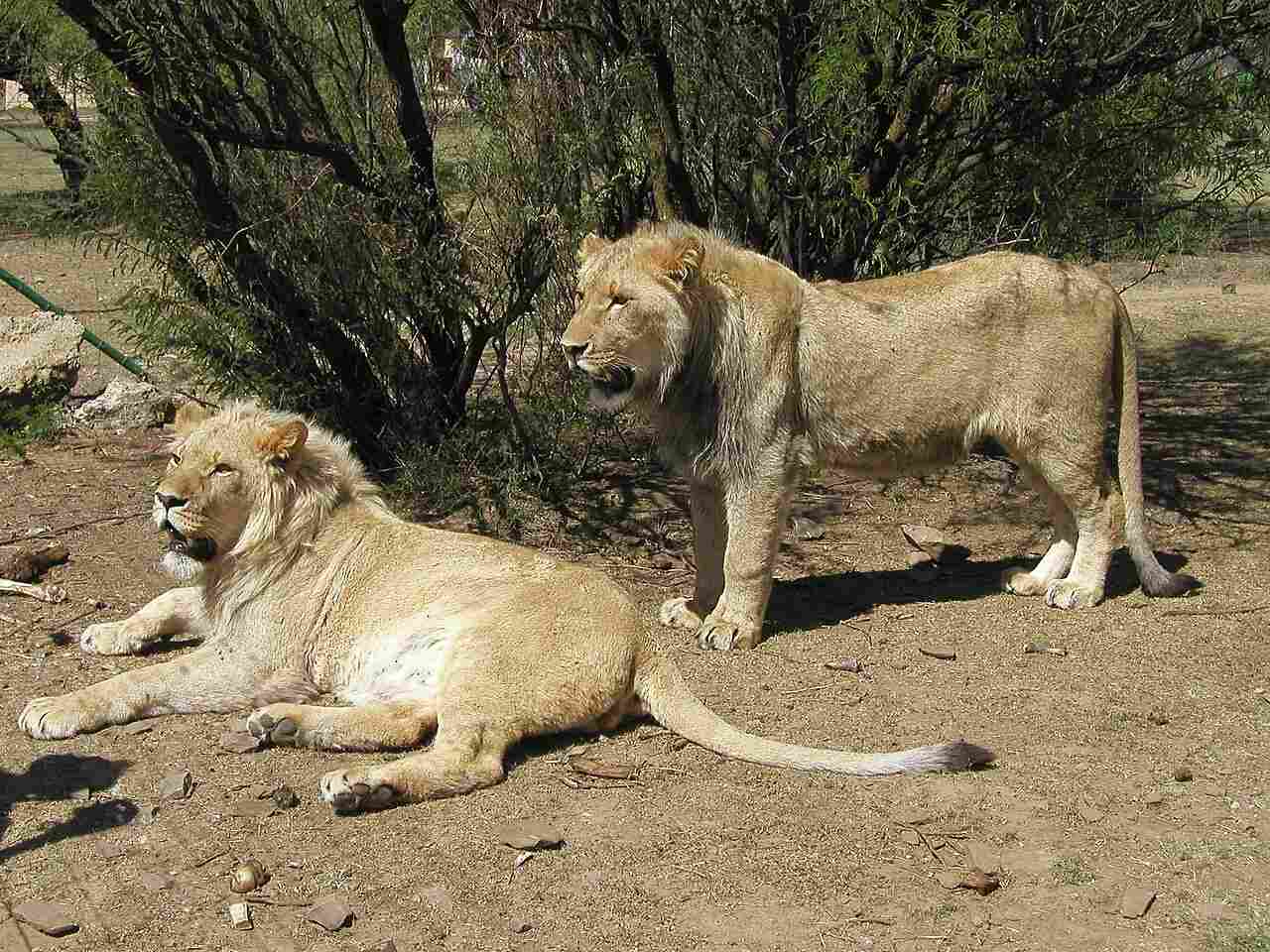
10). Reproduction
Hippos are viviparous, meaning they give birth to live young. The gestation period for hippos is around 8 months, and typically, a single calf is born. The female hippo will isolate herself from the group during the birthing process to protect her newborn from potential threats. This period of isolation can last for up to two weeks.
Lions are also viviparous. The female lion will typically give birth to a litter of 2 to 4 cubs after a gestation period of around 110 days. The cubs are born blind and rely on their mother for protection and nourishment. The lioness will keep her cubs hidden in a den for the first few weeks of their lives, gradually introducing them to the pride as they grow older.
In terms of reproductive success, both hippos and lions have evolved strategies that ensure the survival of their offspring. Hippos invest heavily in the protection of their young, while lions rely on the collective care of the pride. These strategies have proven to be effective in ensuring the survival and growth of their respective populations.
The reproductive strategies of hippos and lions differ due to their distinct biological characteristics. While hippos are viviparous and give birth to live young after a relatively long gestation period, lions are viviparous and give birth to a litter of cubs after a shorter gestation period. These strategies have allowed both species to adapt and thrive in their respective habitats.
11). Danger Posed to Humans
When it comes to the danger posed to humans, both hippos and lions have the potential to be a threat, although their behaviors and interactions with humans differ.
Hippos are known to come close to human settlements, especially if there is a water source nearby. While they may seem docile, hippos are actually responsible for more human deaths in Africa than any other large animal. Their territorial nature and aggressive behavior, especially when they feel threatened or when protecting their young, can lead to dangerous encounters with humans.
On the other hand, lions are less likely to come into close proximity with human settlements. However, in areas where human and lion habitats overlap, conflicts can arise. Lions are apex predators and have been known to attack humans, although such incidents are relatively rare. Precautions should be taken if encountering a lion, such as maintaining a safe distance and avoiding any sudden movements that may trigger an aggressive response.
In terms of the rate of human deaths caused, hippos pose a greater danger compared to lions. However, it is important to note that both animals should be treated with caution and respect.
While both hippos and lions have the potential to be dangerous to humans, hippos are more dangerous than lions, and responsible for more human deaths due to their territorial and aggressive nature. Precautions should be taken when encountering either of these animals to ensure personal safety and to avoid any potential conflicts.

12). Conservation Status
The conservation status of both hippos and lions is a matter of concern due to the main threats to their survival in the wild.
Hippos are currently classified as “vulnerable” by the International Union for Conservation of Nature (IUCN). The main threats to their population include habitat loss and degradation, as well as illegal hunting for their meat and ivory teeth. The destruction of wetland habitats, which are crucial for their survival, has significantly impacted hippo populations. Efforts are being made to protect and restore these habitats, as well as to enforce regulations against illegal hunting.
Lions, on the other hand, are listed as “vulnerable” or “endangered” depending on their specific subpopulations. The main threats to their survival include habitat loss, human-wildlife conflict, and poaching. As human populations expand and encroach upon lion habitats, conflicts arise, leading to retaliatory killings and the fragmentation of lion populations. Poaching for their bones, skins, and body parts also poses a significant threat to their survival. Conservation organizations are working to establish protected areas and implement anti-poaching measures to safeguard lion populations.
Both hippos and lions face significant conservation challenges. Habitat loss, human-wildlife conflict, and illegal hunting are the main threats to their survival in the wild.
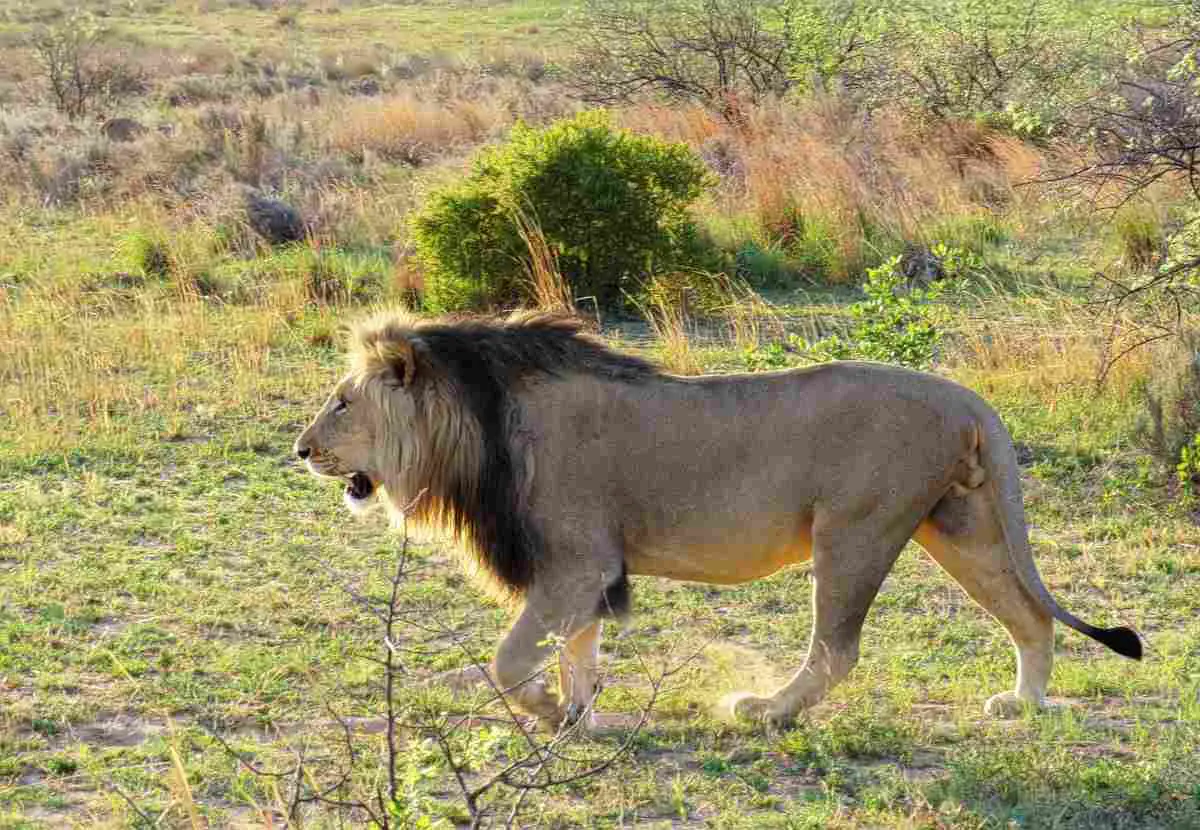
Conclusion
I). SIMILARITIES
In terms of similarities, both hippos and lions are large, powerful animals that play important roles in their respective ecosystems. They are both top predators in their habitats and have adaptations that allow them to thrive in their environments. Additionally, both hippos and lions are social animals, living in groups or prides that provide them with protection and support.
II). DIFFERENCES
Despite their similarities, there are also significant differences between hippos and lions. One key difference is their physical appearance. Hippos have a bulky, barrel-shaped body with short legs and a large head, while lions have a more streamlined body with long legs and a muscular build. Another difference is their diet. Hippos are herbivores, primarily feeding on grasses and aquatic plants, while lions are carnivores, relying on a diet of meat obtained through hunting.
In terms of behavior, hippos are known for their aggressive nature and territorial behavior, often engaging in fierce battles to defend their territories. Lions, on the other hand, are skilled hunters that work together in coordinated attacks to bring down their prey. Additionally, hippos are semi-aquatic animals, spending a significant amount of time in water, while lions are terrestrial animals that primarily inhabit grasslands and savannas.
